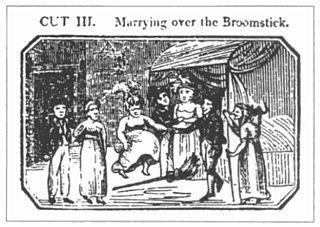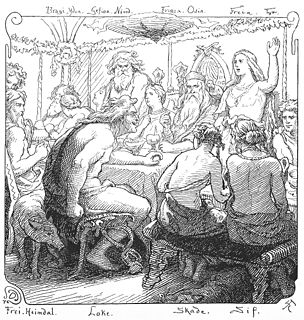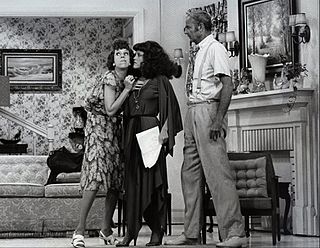
Folklore is the expressive body of culture shared by a particular group of people; it encompasses the traditions common to that culture, subculture or group. These include oral traditions such as tales, proverbs and jokes. They include material culture, ranging from traditional building styles to handmade toys common to the group. Folklore also includes customary lore, the forms and rituals of celebrations such as Christmas and weddings, folk dances and initiation rites. Each one of these, either singly or in combination, is considered a folklore artifact. Just as essential as the form, folklore also encompasses the transmission of these artifacts from one region to another or from one generation to the next. Folklore is not something one can typically gain in a formal school curriculum or study in the fine arts. Instead, these traditions are passed along informally from one individual to another either through verbal instruction or demonstration. The academic study of folklore is called folklore studies or folkloristics, and it can be explored at undergraduate, graduate and Ph.D. levels.

Jumping the broom is a phrase and custom relating to a wedding ceremony where the couple jumps over a broom. It has been suggested that the custom is based on an 18th-century idiomatic expression for "sham marriage", "marriage of doubtful validity"; it was popularized in the context of the introduction of civil marriage in Britain with the Marriage Act 1836.

A joke is a display of humour in which words are used within a specific and well-defined narrative structure to make people laugh and is usually not meant to be taken seriously. It takes the form of a story, usually with dialogue, and ends in a punch line. It is in the punch line that the audience becomes aware that the story contains a second, conflicting meaning. This can be done using a pun or other word play such as irony or sarcasm, a logical incompatibility, nonsense, or other means. Linguist Robert Hetzron offers the definition:
A joke is a short humorous piece of oral literature in which the funniness culminates in the final sentence, called the punchline… In fact, the main condition is that the tension should reach its highest level at the very end. No continuation relieving the tension should be added. As for its being "oral," it is true that jokes may appear printed, but when further transferred, there is no obligation to reproduce the text verbatim, as in the case of poetry.

An insult is an expression or statement which is disrespectful or scornful. Insults may be intentional or accidental. An insult may be factual, but at the same time pejorative, such as the word "inbred".

Freestyle is a style of improvisation with or without instrumental beats, in which lyrics are recited with no particular subject or structure. It is similar to other improvisational music, such as jazz, where a lead instrumentalist acts as an improviser with a supporting band providing a beat. Improv/freestyles are improvised in this way.
Mama(s) or Mamma may refer to:

Flyting or fliting is a contest consisting of the exchange of insults between two parties, often conducted in verse.

Alan Dundes was a folklorist at the University of California, Berkeley. He has been described as "widely credited with helping to shape modern folklore scholarship", and "one of the most admired and influential folklorists in the world" He wrote 12 books, both academic and popular, and edited or co-wrote two dozen more. One of his most notable articles was called "Seeing is Believing" in which he indicated that Americans value the sense of sight more than the other senses.
Signifyin' (vernacular), is a wordplay. It is a practice in African-American culture involving a verbal strategy of indirection that exploits the gap between the denotative and figurative meanings of words. A simple example would be insulting someone to show affection. Other names for signifyin' include: "Dropping lugs, joaning, sounding, capping, snapping, dissing, busting, bagging, janking, ranking, toasting, woofing, putting on, or cracking."
A maternal insult, also referred to as a "Yo mama" joke, is a reference to a person's mother through the use of phrases such as "your mother" or other regional variants, frequently used to insult the target by way of their mother. Used as an insult, "your mother ..." preys on widespread sentiments of filial piety, making the insult particularly and globally offensive. "Your mother" can be combined with most types of insults, although suggestions of promiscuity are particularly common. Insults based on obesity, height, hairiness, laziness, incest, age, race, poverty, poor hygiene, unattractiveness, homosexuality, or stupidity may also be used. Compared to other types of insults, "your mother" insults are especially likely to incite violence. Slang variants such as "yo mama", "yo momma", "yer ma", "ya mum", "ya mom", "ur mom", "your mum", "ur mum", or "your mom" are sometimes used, depending on the local dialect. Insults involving "your mother" are commonly used when playing the Dozens.
Conversation games are games that require only conversational ability. Conversation games owe their popularity to their ability to be played almost anywhere with almost anyone and for their ability to generate conversation. Their popularity has gained in part due to the hip hop culture and TV shows like Wild 'N Out and Yo Momma. Below are some examples.
Trash-talk is a form of insult usually found in sports events, although it is not exclusive to sports or similarly characterized events. It is often used to intimidate the opposition, but can also be used in a humorous spirit. Trash-talk is often characterized by use of hyperbole or figurative language, such as "Your team can't run! You run like honey on ice!" Puns and other wordplay are commonly used.
A taunt is a battle cry, sarcastic remark, gesture, or insult intended to demoralize the recipient, or to anger them and encourage reactionary behaviors without thinking. Taunting can exist as a form of social competition to gain control of the target's cultural capital. In sociological theory, the control of the three social capitals is used to produce an advantage in the social hierarchy as to enforce one's own position in relation to others. Taunting is committed by either directly, or indirectly encouraging others to taunt the target. The target may give a response in kind to maintain status, as in fighting words and trash-talk.
Rufus George Perryman, known as Speckled Red, was an American blues and boogie-woogie piano player and singer noted for his recordings of "The Dirty Dozens", exchanges of insults and vulgar remarks that have long been a part of African-American folklore.
Orval Hobart Mowrer was an American psychologist and professor of psychology at the University of Illinois from 1948 to 1975 known for his research on behaviour therapy. Mowrer practiced psychotherapy in Champaign-Urbana and at Galesburg State Research Hospital. In 1954 Mowrer held the position of president of the American Psychological Association. Mowrer founded Integrity Groups and was instrumental in establishing GROW groups in the United States. A Review of General Psychology survey, published in 2002, ranked Mowrer as the 98th most cited psychologist of the 20th century.

MILF pornography is a genre of pornography in which the actresses are usually women ages 30 to 50, though many actresses have started making this type of pornographic film at age 25. Central to the typical MILF narrative is an age-play dynamic of older women and younger lovers, both males and female. A related term is cougar, which implies an older woman is acting as a predator.
Frustration–aggression hypothesis, otherwise known as the frustration–aggression–displacement theory, is a theory of aggression proposed by John Dollard, Neal Miller, Leonard Doob, Orval Mowrer, and Robert Sears in 1939, and further developed by Neal Miller in 1941 and Leonard Berkowitz in 1969. The theory says that aggression is the result of blocking, or frustrating, a person's efforts to attain a goal.

"The Family" is a series of comedy sketches featured on The Carol Burnett Show, with one installment airing on Carol Burnett & Company. The Carol Burnett Show introduced the skit starting in the 1973-1974 season. Overall, it would air new installments of the skit for the last five seasons of its total 11-season run; the skit aired between the 1973-1974 season to the 1977-1978 season on the show. However, the final installment of "The Family" would not air until September 8, 1979 on an entirely different four week summer series entitled Carol Burnett & Company. This was the only installment of "The Family" that did not air on The Carol Burnett Show, which had completed its run almost a year and a half earlier on March 29, 1978. Altogether, there were 31 installments of "The Family" sketches.
Hortense J. Spillers is an American literary critic, Black Feminist scholar and the Gertrude Conaway Vanderbilt Professor at Vanderbilt University. A scholar of the African diaspora, Spillers is known for her essays on African-American literature, collected in Black, White, and In Color: Essays on American Literature and Culture, published by the University of Chicago Press in 2003, and Comparative American Identities: Race, Sex, and Nationality in the Modern Text, a collection edited by Spillers published by Routledge in 1991.

Do You Love Your Mom and Her Two-Hit Multi-Target Attacks?, also known as Okaa-san Online, is a Japanese light novel series written by Dachima Inaka and illustrated by Pochi Iida. The series is licensed by Yen Press. Meicha launched a manga adaptation in 2017, and an anime television series adaptation by J.C.Staff aired from July to September 2019, with an original video animation (OVA) episode released in March 2020.









